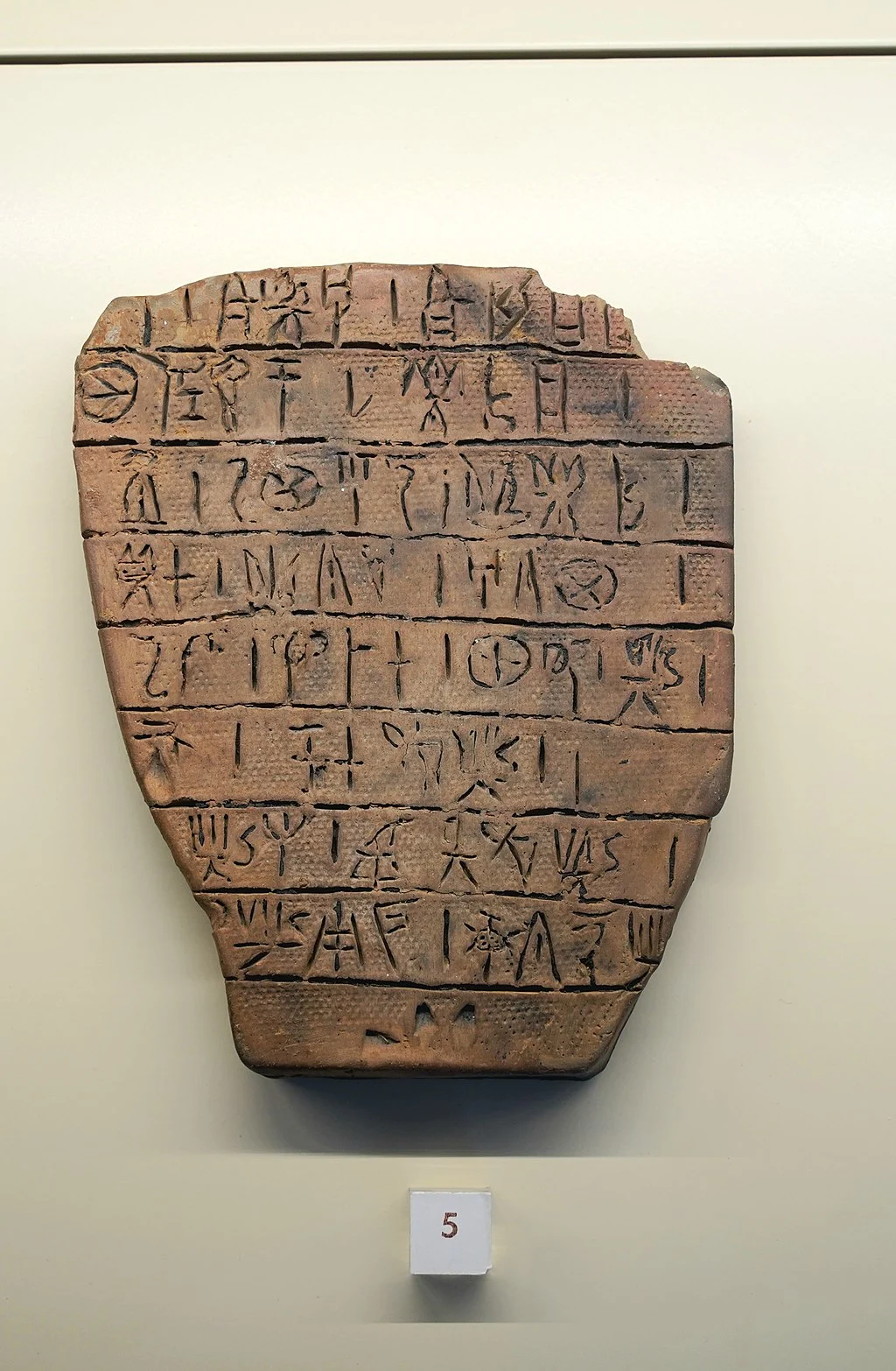The search for the legendary lost island of Atlantis continues to fascinate researchers. However, a detail that is commonly ignored in the search for Atlantis is the fact that Plato’s account of this lost civilization includes several references to Greek writing. Interestingly, these references to the Greek alphabet can help us to work out where Atlantis really was.
In Plato’s Timaeus, written in the fourth century BCE, he presents an account of Solon of Athens speaking to an Egyptian priest. The priest, from Sais, tells Solon the story of Atlantis. Solon is obviously curious as to why his own people, the Greeks, have no knowledge of Atlantis.
The priest tells Solon that this is because of what happened sometime after the events involving Atlantis. According to the priest, the Greeks suffered a terrible societal collapse. He said to Solon:
“Whereas just when you and other nations are beginning to be provided with letters and the other requisites of civilized life, after the usual interval, the stream from heaven, like a pestilence, comes pouring down, and leaves only those of you who are destitute of letters and education.”
According to this, the Greeks had formerly been able to write. However, as happened every now and then with other nations, a natural disaster caused them to lose their writing.
Does this description by the Egyptian priest correspond to anything from genuine history? It does indeed. It matches what happened at the end of the Bronze Age, which was also the end of the Mycenaean Era. Notice what the priest went on to say to Solon:
“There formerly dwelt in your land the fairest and noblest race of men which ever lived, and… you and your whole city are descended from a small seed or remnant of them which survived. And this was unknown to you, because, for many generations, the survivors of that destruction died, leaving no written word..”
The ‘fairest and noblest race of men’ who formerly lived in Greece would logically be the rich and powerful Mycenaeans. At the end of the Bronze Age, this civilization experienced a major societal collapse. This was caused, in part, by natural disasters that occurred at that time, such as tsunamis striking Greece.
After the twelfth century BCE, Greece fell into the Dark Ages. As the Egyptian priest said to Solon, the survivors left no written word. The period of Greek illiteracy continued until the ninth century BCE. At that time, they adopted the Phoenician alphabet, creating the Greek alphabet which has continued until today.
This information in the Timaeus is very valuable. When explaining why the Greeks did not know about Atlantis, the Egyptian priest did not say that the events involving Atlantis occurred before the Greeks had an alphabet. Rather, he mentions that the use of writing among the Greeks was lost during their societal collapse.
Therefore, the events involving Atlantis must have occurred during the era of history in which the Greeks had an alphabet or some other kind of script. Or, at most, Atlantis could only have existed very shortly before the Greeks first started to write, so that those who had known Atlantis would have had the opportunity to write about it.
The Mycenaean Greeks, before the Greek Dark Ages, used Linear B as their writing system. This first emerged among the Greeks in the middle of the second millennium BCE, or about 1500 BCE. Therefore, Atlantis could not have existed much before then at the earliest.
However, it also cannot have existed after about 1200 BCE, because that is when the Bronze Age Collapse began, and the Egyptian priest clearly placed Atlantis before the period of illiteracy that began with that collapse.
The truth about Atlantis based on this evidence
Based on this evidence, the real Atlantis must have been a nation that was still around between c. 1500 BCE at the very earliest and c. 1200 BCE at the very latest.
This helps us enormously in discovering the real Atlantis. The basic story of Atlantis is that it was a rich and powerful civilization that ruled over one main island, and several others, and fought a war against the Greeks. The Greeks were the victors, overthrowing the mighty Atlanteans and ending their dominance.
Within the period between 1500 and 1200 BCE, there is only one nation that fits this basic profile: the Minoans. This is not surprising, because many scholars over the decades have suggested that the story of Atlantis comes from distorted accounts of the Minoan civilization.
They were a rich and powerful civilization that ruled over Crete and many of the Cyclades, including Santorini, which bears a striking resemblance to Plato’s description of the layout of Atlantis. Many of the Minoan customs are similar to those described by Plato too. And crucially, they fought a war against the Mycenaean Greeks in c. 1450 BCE, which they lost.
The chronological evidence revealed by the Greek alphabet strongly supports the conclusion that the story of Atlantis came directly from the Minoan civilization.
Caleb Howells / Greek Reporter
ΟΔΥΣΣΕΙΑ, 19/5/2024 #ODUSSEIA #ODYSSEIA

